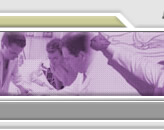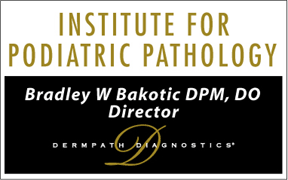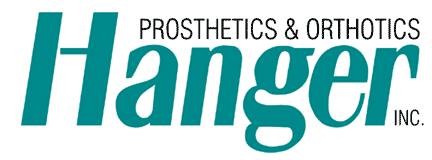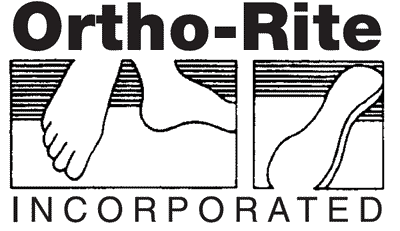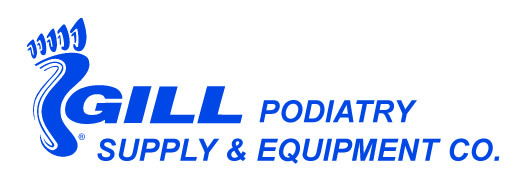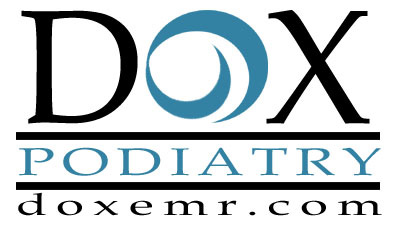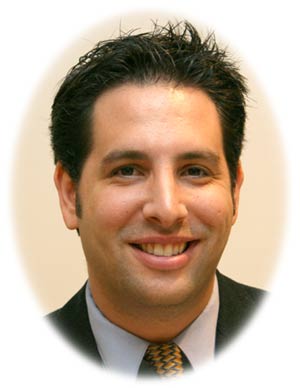 by Jordan R. Stewart, DPM
by Jordan R. Stewart, DPM
Timonium Foot and Ankle Center
Established July 2006
Timonium, MD
I decided to start my
own practice in March 2006 and officially opened the doors on July
31, 2006. As you can see, I accomplished a lot in a short period of
time. I learned a lot about business while interviewing for an
associate position and this helped when I started on my own. Of
note, there are many similar factors to consider, whether you are
starting your own practice or preparing for an associate position.
Starting your own practice
is risky and if you decide to take this route, you need to be aware
of the risks and be fully committed. It takes several years to build
a patient population and you will likely be paying employees before
paying yourself for a long time. On the flip side, you are your own
boss. You make the decisions, whether good or bad, and in the long
run the practice is yours.
So, how do you start your
own practice? Below are some of the big steps you need take:
-
Incorporate the business
and acquire a tax id number
-
Find a location
-
Finance the business,
i.e. get a loan
-
Open a business bank
account
-
Acquire all necessary
licensing including state license, DEA, and controlled drug
substance
-
Get credentialed with
the insurance companies and hospitals
When you start a business,
you take a big financial risks. In the event that your business has
debt, you need to protect your personal assets from creditors.
Therefore, you will likely form either a corporation or a limited
liability company. Meet with your lawyer and accountant to determine
which entity works best for you. If you are business savvy, you can
file the Articles of Incorporation on your own and save some money
on attorneys fees.
After discussing my
situation with both my attorney and accountant, I decided to form an
LLC. My business’s name is Jordan R. Stewart, DPM, LLC and the trade
name or “Doing Business As” name is Timonium Foot and Ankle Center.
Once incorporated, I acquired a federal tax identification number, a
unique 9-digit number that identifies businesses. You will use this
number on your professional applications and for business related
transactions. Getting this number is simple and it can be done
online on the IRS website.
Before setting up your
business and getting ID numbers, it is best to have your business
address. If you have not established an address, you can still
incorporate your business, but in the future you will have to file
change of address forms. These forms have associated fees so you may
want to delay forming the business until you have your practice
location. Remember, every dollar counts, especially in the
beginning.

Jordan R. Stewart, DPM
A PRESENT New Doc Editor
[email protected]

|

|
FROM: |
Irvin
O. Kanat. DPM
Director of Podiatric Education
Providence Hospital - Southfield, MI, and
Genesys Regional Medical Center - Grand
Blanc, MI |
SUBJECT: |
Signing
of Residency Contracts following CRIP
Interviews |
January 5, 2007
Dear Editor,
In a December
issue of PRESENT an article was published entitled "Is
This the Right Deal?" by Jordan R. Stewart, DPM. The
article dealt with the issue of new practitioners who
face an opportunity to sign employment contracts,
following the period of their resident training, and the
concerns that new practitioners should be aware of in
such situations.
The opening
sentence in the article was misleading, and therefore
inappropriate, particularly due to the particular
audience to which PRESENT is directed, that being
Residents, some Students and Residency Program
Directors. The sentence is as follows - "Hopefully by
now you have had success with your interviews and a
contract has been offered." This gives rise to gross
misinterpretation by the reader, particularly now since
the annual Centralized Residency Interview Program
(CRIP) weekends have just been completed. Although the
sentence in question is directed to the period of time
following completion of a residency, it may appear to
some as though the author is condoning the signing of
residency contracts following "success with your
interviews." Hopefully, not the CRIP interviews.
For many years the
profession has rebelled over the fact that some
unethical residency programs have offered employment
contracts to students prior to the established Uniform
Notification Date, in their selfish efforts to
circumvent the established residency matching program
and help assure that they sign contracts with the
individual resident(s) they may be seeking for their
programs. The American Podiatric Medical Association
(APMA), the Council on Podiatric Medical Education
(CPME), the American Association of Colleges of
Podiatric Medicine (AACPM), and the Council on Teaching
Hospitals (COTH) have all joined together with efforts
to prevent programs from such practices which use
students as pawns in their efforts at assuring their
selfish choices of resident.
The APMA adopted
the following position as early as 1987- "RESOLVED, That
the House of Delegates approve the proposed revision in
Requirements for Approval of Residencies in Podiatric
Medicine (CPME 320), pertaining to the uniform
notification date." This Resolution had been submitted
by the Council on Podiatric Medical Education.
The CPME adopted
the following Standard - "The sponsoring institution
shall participate in a national residency matching
service. The sponsoring institution shall not obtain
binding commitment from the prospective resident prior
to the date established by the national resident
matching service in which the institution participates."
The Central
Application Service for Podiatric Residency (CASPR)
Institutional Agreement states that Residency Selection
Personnel "shall abide by the official schedule printed
in the CASPR application materials…and adhere to the
notification date established by the national resident
matching service."
Every effort, in
the interest of fairness and ethical conduct, must be
extended to assure compliance with the residency
selection process and the Uniform Reporting Date now in
place, and any instance that may detract from that
policy must be thwarted.
Thank you for the
opportunity to bring this matter to your attention. I
welcome responses from our community of interest on this
important and timely matter, particularly since this
years Uniform Notification Date, March 12, 2007, will
soon be upon us.
Fraternally,
Irvin O. Kanat.
DPM
Director of Podiatric Education
Providence Hospital - Southfield, MI, and
Genesys Regional Medical Center - Grand Blanc, MI
Editor's Response
Dr. Kanat,
The New Docs on the Block column in PRESENT is intended
to share the experience of 2 podiatrists that have taken
different career paths following residency. In my case,
I started my own practice and Jarrod is working as an
associate. Let me clarify that the statement you felt
was misleading was referring only to the interview
process following residency. That is for a job
position independent of any type of residency program. I
fully agree that the rules of the residency interview
process should be followed so that the match works as
designed. I appreciate your concern for the integrity of
the match process and apologize for any confusion.
Jordan Stewart, DPM
[email protected]
|

This program is supported by an education grant from
Dermik Laboratories.


|
|


